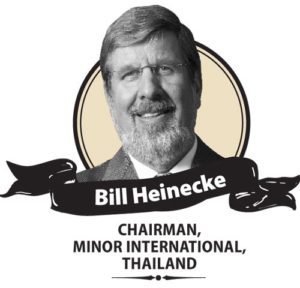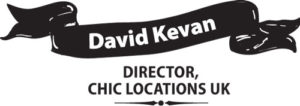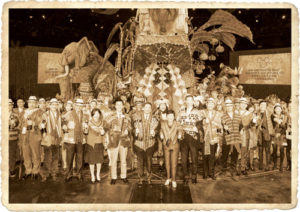How was travel sold? Why was it fun? What made it memorable? Tourism and hospitality veterans reminisce the good old days with anecdotes that will make you gasp in disbelief and ponder whether the industry has changed for the better. If you haven’t, read Blast from the past – Part One too for more travel trade nostalgia
In the late ‘70s/early ‘80s, the Far East was still new. There was a real sense of discovery, not just in sourcing new products but also in explaining the appeal to clients. In many areas, you were just looking at a handful of hotels whereas now you have over 100.
At most hotels, you were dealing with a director of sales who could make instant decisions and had the full trust of the owners. This was way before rigid automation/yield controllers came into fashion! It was fun as you could be creative and innovative, it was not just sold on the lowest price.
There was more unity and cooperation between the operators, hotels and airlines. We all wanted the business, but the hotels felt the best way to sell their product was through the tour operator. Hardly any clients booked direct with hotels.
Obviously the introduction of the web changed much of this, and now hotels almost seem to be working in competition to operators, doing their utmost to attract direct customers.
On client habits, the biggest change is, in the past there was an appreciation of your time and knowledge – and almost a guilt factor should the booking not proceed. It is vastly different now. Clients
now seem to think of the trade as a free consultation service, to verify what they might have heard or read. There is no embarrassment about taking an hour of your time without the ‘reward’ of a booking. Ironically this is coming from clients who in their own professions charge by the hour (e.g. lawyers, doctors, etc). Due to the Internet, everyone seems to be an ‘expert’, but with extremely selective vision and hearing! – David Kevan, director, Chic Locations UK on how the overall business of selling travel has changed. Read on for more personal reflections by Kevan and others.
LUCKY IF WE GOT US$15 FOR A ROOM
 We opened our first property in Pattaya in 1978. We never planned to be in the hotel business. The only other company was Italthai, which also never planned to be in the hotel business. They had Nipa Lodge and we had the Royal Garden. They went from the Nipa Lodge to doing The Oriental and then the whole Amari chain came along.
We opened our first property in Pattaya in 1978. We never planned to be in the hotel business. The only other company was Italthai, which also never planned to be in the hotel business. They had Nipa Lodge and we had the Royal Garden. They went from the Nipa Lodge to doing The Oriental and then the whole Amari chain came along.
We started in Pattaya with the Royal Garden Resort. We really knew nothing about the hotel trade apart from the fact that we had a property we wanted to sell, but we couldn’t get anyone to buy it. Next thing we knew we were in the hotel business.
When I look back to those days in Pattaya it was a really tough market. We were lucky if we got US$15-20 a room; to get US$25 was really lucky. When we opened our riverside hotel in Bangkok a couple of years later there was another crisis – martial law was announced the day we opened. So we opened the hotel even though there were no guests. That was another tough period for Thailand. Rates were terrible in Bangkok but at least we were able to make money from our property in Hua Hin that had much better rates back then. We were lucky we started in those sorts of places.
These days it’s pretty tough and competitive. There aren’t the same opportunities and I haven’t seen any uncompetitive markets in the country. The good thing is the country is still growing.
I smile every time people write off Thailand. I remember when people said no one would ever go back to Phuket after the 2004 tsunami. I’ve lived through six of the 12 coups in Thailand. Now, again, we seem to be at one of those times when people think Thailand is in a dire situation. There’s nothing wrong with Thailand; what’s wrong is the perspective from abroad.
We’re fortunate to have a world-class tourism industry. We’re never going to be world-class at making tennis shoes or mining coal; how many other countries in the world are better than Thailand at hospitality?
YOU WANT TO BE DEPORTED OR WHAT?
 It was during martial law in the 1970s under Philippine president Ferdinand Marcos when, as the banquet manager of the then Manila Hilton (now Waterfront Manila Pavilion Hotel), I was asked by a Malacanang Palace officer to cater to the grand inauguration of San Juanico Bridge connecting Samar to Leyte in Visayas.
It was during martial law in the 1970s under Philippine president Ferdinand Marcos when, as the banquet manager of the then Manila Hilton (now Waterfront Manila Pavilion Hotel), I was asked by a Malacanang Palace officer to cater to the grand inauguration of San Juanico Bridge connecting Samar to Leyte in Visayas.
My expatriate colleagues advised me to turn down the business, fearing that the government would not pay. But I said: “I can’t. Otherwise all of you will be deported.”
The hotel’s kitchen brigade, including ice carvers, was brought on site and we set up the kitchen and service facilities including marquees, ice carvers and flowing fountains a week in advance.
The palace officer even commandeered the army, navy and air force at my disposal. What a high and mighty feeling to be the skipper in charge! When I saw the helicopters whirling in an open field and men in fatigue uniforms loading our china and other catering accoutrements, I was strutting like a peacock to see our hotel’s logo on display.
Everything went like clockwork, a complete success.
But the following morning, the cooks were furiously banging on my door. “Wake up, quick! Everything is gone, everyone disappeared!” they wailed. We were left stranded on the island and all the hotel’s equipment had disappeared.
When I tried to collect payment from the palace officer, he suddenly vanished! My head was spinning. I was on the chopping block. I guaranteed this catering, waiving the required deposit to the great apprehension of my banquet colleagues.
Luckily, I had another hotline to the palace. He raised the money and we got paid.
The catering cost one million pesos – which in today’s value is about 15 million pesos (US$342,234) – a record in the history of any catering contract for the hotel.
WHAT A GIFT!
The entire Sheraton Auckland Hotel and Towers, of which I was manager, was abuzz because the emir of a Middle Eastern kingdom was visiting New Zealand for the first time.
Since the local staff was not familiar with the Middle East, I called someone from the foreign affairs department to brief them on the specific nuances and habits peculiar to the Arab culture.
The visit proved to be fruitful with trade and investment agreements exchanged between the host and visiting governments. On the day of their departure, the chief minister came to see me, expressing the emir’s delight over the superb service, delicious food and warm reception. And he gave a few dozen boxes as token gifts.
I called the department heads, asking them to distribute the gifts to the staff who attended to the emir. That day, the air was thick with excitement. “Mr Lopez, do you know what was in those boxes?” shrieked the F&B manager.
“Rolex watches!”
– Lopez is also president, Philippine Hotel Federation
WHISKY AND RAW CHILLI
 Looking through my old passports, my first visit to Thailand was in 1977, 37 years ago. It was my trip to Asia and I stayed at Montien Patpong – never seen such a busy coffeeshop at 02:00! Then down to Pattaya and met with a young, fresh-faced Henry Widler who was then a resident manager. Kurt Rufli was general manager of the Nipa Lodge.
Looking through my old passports, my first visit to Thailand was in 1977, 37 years ago. It was my trip to Asia and I stayed at Montien Patpong – never seen such a busy coffeeshop at 02:00! Then down to Pattaya and met with a young, fresh-faced Henry Widler who was then a resident manager. Kurt Rufli was general manager of the Nipa Lodge.
Hardly anyone went to Asia at the time from the UK, then Kuoni bought Houlders Holidays, a big player in the UK and Asia took off in the mid-70s.
In Thailand my first points of call were Amari, Dusit and Diethelm Travel under Luzi Matzig at the time, as that covered 60 per cent of your product needs. Dusit at the time had Rayavadee and Santiburi as well. Then it was to Akorn Hoontrakul of the Imperial Group – he introduced me to the delights of whisky and raw chilli, which made for an interesting lunch! I recall Akorn telling me about his dream to build a hotel on a totally undeveloped little island called Samui. So the next day, we went to have a look. The flight to Surat Thani (this was way before Samui had an airport), then the ferry and we’re there, ending the day on the beach at what was to become Tongsai Bay.
It used to be incredibly difficult to get a room in Bangkok, as demand totally exceeded supply so frequently that we used airport hotels as base. Traffic was horrible even in those days, and most taxis considerately carried a plastic bottle in case of contingencies.
In Malaysia, Penang was the only resort on the radar. Rasa Sayang, Golden Sands, Casuarina, Lone Pine and a delightful little place called Palm Beach which Shangri-La knocked down to build the entertainment complex now residing between Rasa Sayang and Golden Sands. Langkawi was not even a consideration.
In Bali, the focal point was Sanur, with Bali Hyatt and Segara Village as the two most popular hotels followed by Sanur Beach. Nusa Dua was still being developed and Kuta was the preserve of young surfers. Upcountry, there were just a few hotels in Ubud, with the Amanpuri and Kupu Kupu as the forerunners.
Singapore, like Bangkok, had more demand than beds,  with most of the hotels located off Orchard Road/Tanglin Road. Popular hotels at the time were Century Park Sheraton, Marco Polo and Goodwood Park. Clarke/Boat Quay were still a twinkle in a developer’s eye.
with most of the hotels located off Orchard Road/Tanglin Road. Popular hotels at the time were Century Park Sheraton, Marco Polo and Goodwood Park. Clarke/Boat Quay were still a twinkle in a developer’s eye.
Depending on the year, Hong Kong seemed to go from feast to famine. There were times when you had to beg for a room, literally, then six months later you could negotiate a stay three/pay two deal with trimmings. Popular hotels at the time were Lee Gardens at Causeway Bay and New World Harbour View at Wan Chai.
It was an exciting time, as everything was new and fresh. You were applauded for innovation and creativity, and tourist boards/airlines and operators all worked hand in hand to build awareness. It was at a time when airline sales managers could be instrumental in building up routes and could really influence what was on offer, rather than just reacting to a head office directive. They had the autonomy to make decisions without having to refer everything to a yield controller. It was much less controlled, and probably more fun.
In many cases, tourism contacts I made in the region became good personal friends, although commercially I am now probably dealing with their grandchildren!
After all these years, I still have a great love for the region. I am privileged to have seen many destinations in their infancy and, in my own way, helped in their development. By the same token I am also saddened by the commercialisation of certain destinations, such as Bali or Phuket, but in reality that was always going to happen.
GUNG-HO TRAVEL TRADE PARTNERS
 When I made my Disney debut in 2010, at our travel trade summit marking the resort’s fifth anniversary, travel agencies were content to be entertained. Increasingly, however, we have been introducing interactive formats in trade education, and travel consultants have become active participants in our edutainment and webinars, such as in the launch of Toy Story Land, Grizzly Gulch and Mystic Point.
When I made my Disney debut in 2010, at our travel trade summit marking the resort’s fifth anniversary, travel agencies were content to be entertained. Increasingly, however, we have been introducing interactive formats in trade education, and travel consultants have become active participants in our edutainment and webinars, such as in the launch of Toy Story Land, Grizzly Gulch and Mystic Point.
In March this year, my team and I had our top  travel trade partners put on costumes and join the cast of the Adventure Behind the Scenes show, staged for the Celebration of Sales Excellence 2013 where 26 awards were presented to our top performers.
travel trade partners put on costumes and join the cast of the Adventure Behind the Scenes show, staged for the Celebration of Sales Excellence 2013 where 26 awards were presented to our top performers.
Our trade partners didn’t need much persuasion! They were keen to go on stage, and the experience gave them a more intimate understanding of the behind-the-scenes work that makes Disney entertainment appears effortless. Ultimately, such involvement brings them closer to our brand and contributes to more mutually rewarding partnerships in the long run.
Additional reporting from Prudence Lui, Rosa Ocampo, Greg Lowe and S Puvaneswary
This article was first published in TTG Asia, August 8, 2014 issue, on page 5. To read more, please view our digital edition or click here to subscribe.




















